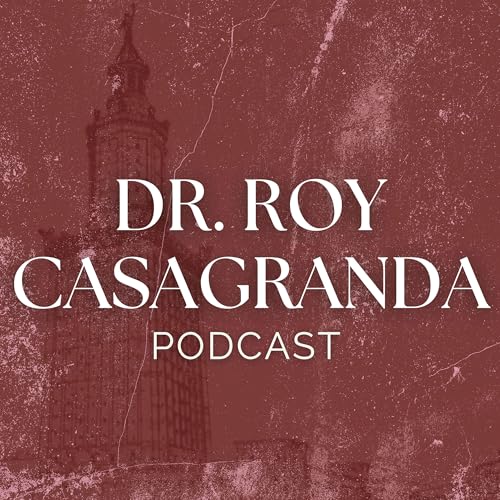
The 1,000-year Legacy of Ibn Sina
No se pudo agregar al carrito
Solo puedes tener X títulos en el carrito para realizar el pago.
Add to Cart failed.
Por favor prueba de nuevo más tarde
Error al Agregar a Lista de Deseos.
Por favor prueba de nuevo más tarde
Error al eliminar de la lista de deseos.
Por favor prueba de nuevo más tarde
Error al añadir a tu biblioteca
Por favor intenta de nuevo
Error al seguir el podcast
Intenta nuevamente
Error al dejar de seguir el podcast
Intenta nuevamente
-
Narrado por:
-
De:
Known as the “Father of Modern Medicine,” Ibn Sina was a Persian polymath whose writings transformed science, philosophy, and ethics. In this episode, Roy traces the turbulent world Ibn Sina lived in, the intellectual traditions that shaped him, and the groundbreaking discoveries that continue to impact our lives today.
Takeaways:
- The political and cultural backdrop of Ibn Sina’s time, including the collapse of empires and the rise of learning centers like the House of Wisdom.
- Ibn Sina’s early genius: memorizing the Qur’an at 10, mastering philosophy as a teenager, and serving as a court physician by 17.
- His most famous work, The Canon of Medicine, which introduced the revolutionary idea that diseases are distinct and can be prevented, not just cured.
- His contributions to philosophy, including early ideas of entropy and the concept of a singularity, foreshadowing the modern Big Bang theory.
- Why Ibn Sina’s legacy remains vital to medicine, science, and human knowledge.
Resources & References:
- Ibn Sina, The Canon of Medicine (1025)
- Secondary readings: Aristotle, Metaphysics; Euclid, Elements; Ptolemy, Almagest; Al-Farabi’s commentary on Aristotle; Writings preserved and translated through the House of Wisdom (Islamic Golden Age)
Beyond the podcast:
- Want to watch this lecture? Check out the full video.
- Want to support the show? Buy Dr. Roy a coffee!
This lecture was originally recorded at the Museum of the Future for the series Lessons from the Past (2025).
Todavía no hay opiniones



